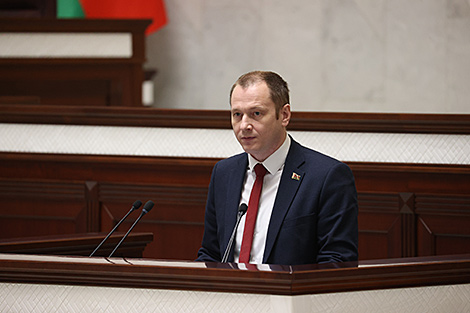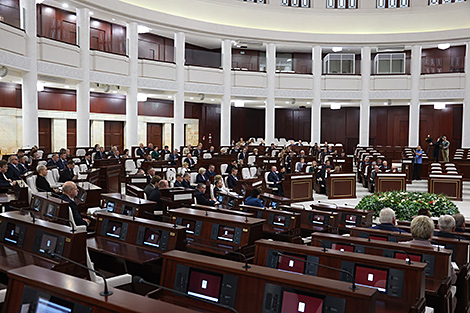Business news
Belarus-Russia negotiations on gas price enter home stretch

An archive photo
MINSK, 5 November (BelTA) - Negotiations between Belarus and Russia on the price for natural gas are in the home stretch, Belarusian Energy Minister Denis Moroz said as he answered questions from MPs after presenting the bill "On the Ratification of the Treaty between the Republic of Belarus and the Russian Federation on the Formation of the Unified Electricity Market of the Union State”, BelTA has learned.
“The negotiations regarding gas are underway. We achieved significant progress in the previous three-year period with an agreement to fix the price for natural gas for the Republic of Belarus for three years. This year, that three-year period is ending. At the moment, the negotiations on the price for natural gas for the Republic of Belarus are in their final phase. We are hoping for a further convergence of natural gas prices for consumers in the Republic of Belarus and the Russian Federation, which, in turn, will lead to a convergence in the cost of electricity generated from natural gas,” Denis Moroz said.
An MP asked whether the Belarus-Russia agreement on the unified electricity market of the Union State would align the tariffs for economic entities of the two countries.
Denis Moroz noted that under the current conditions, where Russia is the main sales market, it is important to create conditions to make sure energy prices are the same for Belarusian consumers and for Russian consumers and producers.
The minister explained how this impacts the situation. The Belarusian nuclear power plant (BelNPP) generates about 40% of the country's electricity. “This 40% is not affected by any external factors. This is stable, reliable production of electrical energy,” he noted. At the same time, approximately 60% of the country's electricity volume is currently generated primarily using natural gas.


The minister pointed out that the cost of natural gas accounts for 80% of the production cost of electricity generated from natural gas. “The difference in the cost of natural gas for the Republic of Belarus and the Russian Federation, in turn, determines the difference in electricity tariffs for consumers in our country and in the Russian Federation,” he noted.
A significant factor influencing this disparity is cross-subsidization. The tariffs for electrical and thermal energy for household consumers of Belarus are largely subsidized, and these costs are transferred to the real sector of the economy.
The Energy Ministry has been working hard to improve efficiency and reduce costs. In January-September 2025 alone, energy production costs were reduced by approximately Br80 million, which is a significant figure. The annual target for the Energy Ministry is Br91 million.
“We will continue to work on improving our efficiency and do everything to ensure that the cost of energy within the country is the same as, or even lower than, in the Russian Federation,” the minister said.







 print version
print version make home page
make home page add to bookmarks
add to bookmarks

